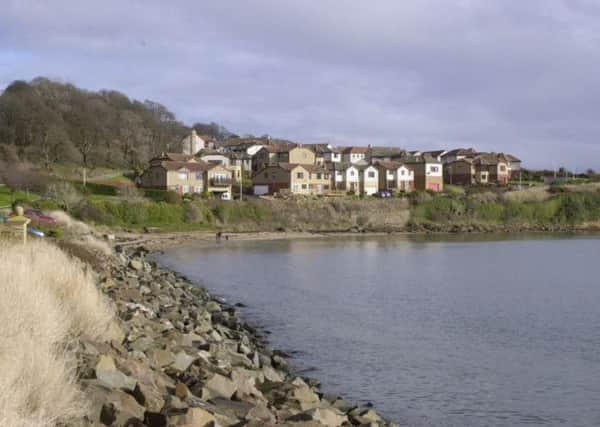Call to clean up radioactive Dalgety Bay


While investigations concluded there is unlikely to be a link between cancer rates and radiation contamination at Dalgety Bay in Fife, the report identified possible health risks through skin contact or ingestion.
The Committee on Medical Aspects of Radiation in the Environment (Comare) was commissioned by the Scottish Government in 2011 to investigate risks to the public following the discovery of radioactive particles and high-activity radiation.
Advertisement
Hide AdAdvertisement
Hide AdIt is thought to date back to instruments from Second World War aircraft dumped at the site.
Investigations have also been carried out by the Scottish Environment Protection Agency (Sepa) and the Ministry of Defence (MoD).
Comare has recommended that the Scottish Government acts to ensure the area is cleaned up as soon as possible.
It also recommended that radiation monitoring and “radioactive object recovery work,” presently undertaken by the MoD, should continue.
Meanwhile, it said children should not dig on the beach and this warning should be added to signs posted at the site already.
Further research on radiation skin doses should be carried out, the report recommended.
Comare chairman Alex Elliott said: “We believe it is very unlikely the excess cases of liver cancer or non-Hodgkin lymphoma during 2000-2009 or non-malignant skin cancer during 1975-2002 which have been reported in local residents, are due to the presence of radium.
“Based on data from Sepa, the University of Stirling and Public Health England, taken in conjunction with data from the habits survey, Comare has concluded that the sources present at Dalgety Bay pose a potential risk to public health and, as such, steps should be taken as soon as possible to remediate the affected areas.”
Advertisement
Hide AdAdvertisement
Hide AdPublic health minister Michael Matheson said: “The delay surrounding the publication of today’s Comare report has been unacceptable.
“However, now that the report is finally in the public domain, we can at least move forward towards a resolution to this situation. Sepa have been working with the MoD on the development of remediation options, even while the report remained unpublished, and so I am expecting the MoD to start to implement a long-term solution shortly. Scottish Government officials will continue to engage with Sepa and other parties to ensure that a swift and effective conclusion is reached.”
Sepa and the Scottish Government have had full sight of the findings since November, according to the MoD.
A UK government spokeswoman said: “The advice from Public Health England, formerly the Health Protection Agency, has consistently been and, following consideration of this report, continues to be that the risk to the local community at Dalgety Bay from the presence of radium is very low.
“A report setting out remediation options was published earlier this year and next month the MoD will publish a long-term solution for the bay, setting out how all parties can best manage the site in the future.”
Labour MP Gordon Brown, whose constituency includes Dalgety Bay, said: “There should have been immediate action on the report, not its suppression for months on end. I want an assurance that all actions recommended in the report will be taken immediately, especially on child health and on advising urgent action to clean up the area.”